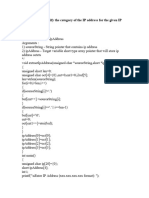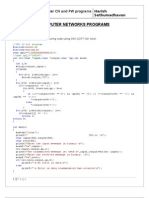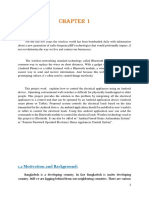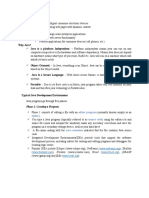0% found this document useful (0 votes)
11 views17 pagesCN Chatgpt Programs
The document contains multiple C/C++ code snippets demonstrating various algorithms and networking concepts. It includes implementations of Dijkstra's algorithm for shortest paths, CRC error detection, distance vector routing, client-server communication using sockets, Hamming code for error correction, and FIFO communication. Each section is a standalone program showcasing different functionalities in computer networking and algorithm design.
Uploaded by
aksh.a55tCopyright
© © All Rights Reserved
We take content rights seriously. If you suspect this is your content, claim it here.
Available Formats
Download as PDF, TXT or read online on Scribd
0% found this document useful (0 votes)
11 views17 pagesCN Chatgpt Programs
The document contains multiple C/C++ code snippets demonstrating various algorithms and networking concepts. It includes implementations of Dijkstra's algorithm for shortest paths, CRC error detection, distance vector routing, client-server communication using sockets, Hamming code for error correction, and FIFO communication. Each section is a standalone program showcasing different functionalities in computer networking and algorithm design.
Uploaded by
aksh.a55tCopyright
© © All Rights Reserved
We take content rights seriously. If you suspect this is your content, claim it here.
Available Formats
Download as PDF, TXT or read online on Scribd
/ 17






















































































